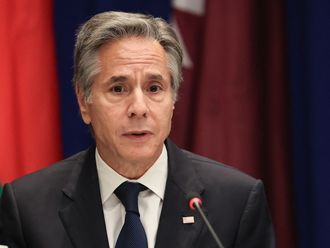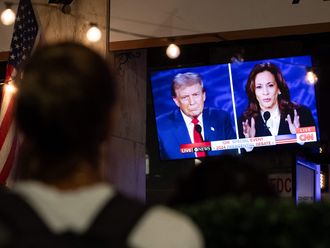Dubai: The growing tensions in Lebanon got the lion's share of high-level diplomatic consultations in several Arab capitals yesterday, including a Saudi-Syrian summit in Riyadh.
Saudi King Abdullah Bin Abdul Aziz held talks with Syrian President Bashar Al Assad three days after Iranian President Mahmoud Ahmadinejad ended his visit to Lebanon.
Lebanese Prime Minister Sa'ad Hariri also went to Saudi Arabia for a "previously planned family visit" on the eve of the summit, sources close to Hariri told Gulf News.
However, it was not immediately clear whether he would join the Saudi-Syrian talks.
"He is open to any invitation for any meeting," Ammar Houri, MP from the Al Mustaqbal (Future) party, said. "This depends on the outcome of the summit. In case he was invited, he is ready."
The talks between the leaders of Saudi Arabia and Syria, which both exert considerable influence on Lebanon's political arena, aim to ease the political pressure which is threatening the existence of the Hariri government.
Some recent reports said the UN-backed tribunal probing the assassination of former Lebanese Prime Minister Rafik Hariri is set to indict members of Hezbollah, thus further fuelling tensions in the country.
Saudi Arabia strongly backs Hariri and has endorsed the tribunal, while Damascus has long been close to Hezbollah, which is also strongly supported by Iran.
The outcome of Ahmadinejad's visit is also expected to be discussed during the Riyadh talks, Lebanese politicians said.
"What the Iranian president spoke of during his visit to Lebanon of an alliance among the peoples of six countries is worrisome and we don't approve it," Houri said. "Nobody assigned him [Ahmadinejad] to speak on behalf of the region's peoples."
The Iranian president said during one of his speeches that Lebanon's enemies are the same enemies of "Iran, Lebanon, Syria, Jordan, Iraq and Turkey."
The Riyadh summit also seeks to ease tensions over the political deadlock in Iraq and discuss the fate of Palestinian-Israeli peace talks in the face of Israel's refusal to freeze its colony activities, analysts said.












